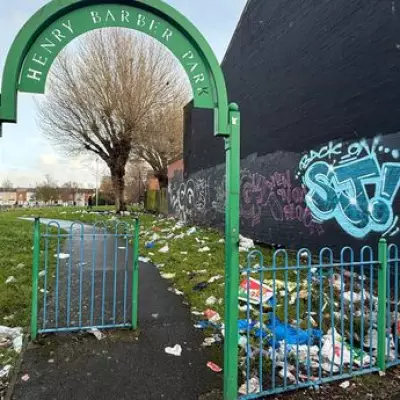
Shocking new photographs have exposed the sheer scale of Birmingham's fly-tipping epidemic, showing a notorious hotspot in Tyseley so overwhelmed with rubbish that the pathway has become completely blocked to pedestrians and cyclists.
The disturbing images reveal a mountain of discarded waste including mattresses, furniture, construction materials, and countless black bags spilling their contents across the public right of way. What was once a functional pathway connecting the Grand Union Canal to Redfern Road has transformed into an illegal dumping ground of staggering proportions.
Community Outrage Grows
Local residents have expressed their fury and frustration at the situation, which has been steadily worsening over recent months. One community member described the area as being treated like a "free-for-all tip" by irresponsible dumpers who show complete disregard for both the environment and local people.
"It's absolutely disgusting," said a local resident who wished to remain anonymous. "This used to be a pleasant route for walking and cycling, but now it's become a health hazard and an eyesore. Something needs to be done urgently."
Council Under Pressure to Act
Birmingham City Council faces mounting pressure to address what locals are calling an "environmental crisis" in their neighbourhood. The authority has confirmed they are investigating the incident and planning cleanup operations, but residents question why preventive measures weren't implemented sooner given the location's history as a fly-tipping hotspot.
The council has emphasised that fly-tipping is a criminal offence carrying severe penalties, including unlimited fines and potential prison sentences. They've urged witnesses to come forward with any information that could help identify those responsible for this latest environmental vandalism.
The Wider Fly-Tipping Problem
This incident highlights a growing problem across urban areas in the UK, where illegal waste dumping continues to plague communities despite increased awareness and stricter penalties. The cost of cleanup operations ultimately falls on taxpayers, diverting valuable resources from other essential services.
Environmental campaigners argue that more needs to be done to tackle the root causes of fly-tipping, including:
- Improved access to legitimate waste disposal facilities
- Better education about responsible waste management
- Increased surveillance and enforcement in known hotspots
- Stronger penalties for convicted fly-tippers
As Birmingham grapples with this latest fly-tipping scandal, the community waits anxiously for both cleanup and long-term solutions to prevent the problem from recurring. The blocked pathway serves as a stark reminder of the environmental and social costs of illegal dumping, and the urgent need for comprehensive action.





